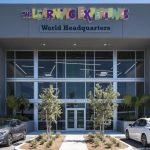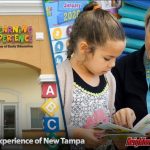Unlock Your Potential: Experience Learning Knowledge Like Never Before!
Experience Learning Knowledge: Unlocking the Power of Lifelong Education
Introduction
Dear Readers,
1 Picture Gallery: Unlock Your Potential: Experience Learning Knowledge Like Never Before!

Welcome to a world where learning never stops, where knowledge is the key to success, and where experience is the best teacher. In this article, we will explore the concept of experience learning knowledge and how it can enrich our lives. Join us on this journey as we delve into the power of lifelong education.
Experience learning knowledge is a holistic approach to education that emphasizes the importance of hands-on experiences, practical application, and real-world problem-solving. Unlike traditional classroom learning, which often focuses solely on theoretical concepts, experience learning knowledge encourages individuals to actively engage with their environment and actively participate in their own learning process.

Image Source: medium.com
By immersing ourselves in the world around us, we gain a deeper understanding of the concepts we learn and develop the skills necessary to apply them in real-life situations. It is through experience learning knowledge that we truly unlock the power of education and transform ourselves into lifelong learners.
Throughout this article, we will explore the what, who, when, where, why, and how of experience learning knowledge, as well as its advantages, disadvantages, and frequently asked questions. So let’s dive in and discover the incredible benefits that experience learning knowledge can offer.
What is Experience Learning Knowledge?
🔍 Experience learning knowledge is an educational approach that focuses on hands-on experiences and practical application. It goes beyond traditional classroom learning by emphasizing real-world problem-solving and active participation from learners.
🔍 Experience learning knowledge aims to bridge the gap between theory and practice, allowing individuals to gain a deeper understanding of concepts and develop essential skills through immersive experiences.
🔍 It encourages learners to actively engage with their environment, experiment, make mistakes, and learn from them. By doing so, they can apply their knowledge and skills in real-life situations, making the learning process more meaningful and relevant.
🔍 Experience learning knowledge can take various forms, including internships, apprenticeships, field trips, simulations, and project-based learning. It is a flexible approach that can be tailored to different subjects, disciplines, and educational levels.
🔍 In essence, experience learning knowledge recognizes that true education goes beyond textbooks and lectures. It is about applying knowledge, gaining hands-on experience, and developing the skills necessary to thrive in the real world.
Who can Benefit from Experience Learning Knowledge?
🔍 Experience learning knowledge is beneficial for learners of all ages and backgrounds. It is not limited to a particular age group or educational level.
🔍 Students at all levels, from preschool to postgraduate studies, can benefit from experience learning knowledge. It allows them to develop critical thinking skills, problem-solving abilities, and a deeper understanding of the subjects they are studying.
🔍 Professionals seeking to enhance their skills or switch careers can also benefit from experience learning knowledge. It provides opportunities for practical application and hands-on learning, allowing them to acquire new knowledge and competencies.
🔍 Additionally, experience learning knowledge can benefit individuals who are simply curious and eager to learn. Lifelong learners who embrace this approach can continuously expand their knowledge and skills, regardless of their formal education.
🔍 In conclusion, experience learning knowledge is for anyone who wants to enhance their learning experience, develop practical skills, and gain a deeper understanding of the world around them.
When and Where Can Experience Learning Knowledge be Applied?
🔍 Experience learning knowledge can be applied in various contexts and settings. It is not limited to traditional classrooms but can be integrated into different learning environments.
🔍 Schools and educational institutions can incorporate experience learning knowledge into their curriculum. By providing hands-on activities, field trips, and project-based assignments, they can enhance the learning experience of their students.
🔍 Workplaces can also embrace experience learning knowledge by offering internships, apprenticeships, and on-the-job training programs. This allows employees to gain practical skills and apply their knowledge in a real-world setting.
🔍 Furthermore, community organizations, museums, and cultural institutions can provide opportunities for experience learning knowledge through interactive exhibits, workshops, and immersive experiences.
🔍 It is worth noting that experience learning knowledge is not limited to specific locations or formal educational settings. It can happen anywhere, anytime. Whether it’s through volunteering, traveling, or engaging in hobbies, individuals can actively seek out experiences that contribute to their lifelong learning journey.
🔍 In summary, experience learning knowledge can be applied in schools, workplaces, community organizations, and beyond. It is a flexible approach that can be integrated into various settings to enhance the learning experience.
Why is Experience Learning Knowledge Important?
🔍 Experience learning knowledge is important because it promotes active learning, critical thinking, and practical application of knowledge.
🔍 Traditional classroom learning often focuses on rote memorization and passive absorption of information. In contrast, experience learning knowledge encourages learners to actively engage with the subject matter, ask questions, and seek answers through hands-on experiences.
🔍 By actively participating in their own learning process, individuals develop critical thinking skills and the ability to solve real-world problems. They become active learners who can apply their knowledge and adapt to different situations.
🔍 Experience learning knowledge also prepares individuals for the challenges of the future. In a rapidly changing world, where new technologies and industries emerge, adaptability and practical skills are crucial. Experience learning knowledge equips learners with the tools they need to navigate the complexities of the modern world.
🔍 Furthermore, experience learning knowledge fosters a love for learning and a lifelong pursuit of knowledge. By making the learning process more engaging and relevant, it inspires individuals to continue learning beyond formal education and throughout their lives.
🔍 In conclusion, experience learning knowledge is important because it promotes active learning, critical thinking, adaptability, and a lifelong love for learning.
How Can You Implement Experience Learning Knowledge?
🔍 Implementing experience learning knowledge begins with a mindset shift. It requires a shift from passive consumption of information to active participation in the learning process.
🔍 Start by seeking out opportunities for hands-on experiences and practical application of knowledge. Look for internships, apprenticeships, or project-based assignments that allow you to apply what you have learned in real-life situations.
🔍 Embrace experiential learning methods such as field trips, simulations, and problem-solving activities. These activities provide opportunities for active engagement and practical skill development.
🔍 Connect with mentors, professionals, and experts in your field of interest. Seek their guidance and learn from their experiences. Engaging with experienced individuals can provide valuable insights and enhance your learning journey.
🔍 Finally, embrace a lifelong learning mindset. Recognize that learning does not stop after formal education. Actively seek out learning opportunities, whether it’s through courses, workshops, or self-directed learning.
🔍 By implementing experience learning knowledge, you can unlock the power of lifelong education and continuously grow as a learner.
Advantages and Disadvantages of Experience Learning Knowledge
Advantages:
1. Enhanced Learning Experience
👍 Experience learning knowledge provides a more engaging and immersive learning experience compared to traditional classroom learning. It allows learners to actively participate in their own learning process and make connections between theory and practice.
2. Practical Application of Knowledge
👍 Experience learning knowledge equips learners with practical skills that can be applied in real-life situations. It bridges the gap between theory and practice, ensuring that knowledge is not only theoretical but also applicable.
3. Development of Critical Thinking Skills
👍 By engaging in hands-on experiences and real-world problem-solving, learners develop critical thinking skills. They learn how to analyze situations, evaluate options, and make informed decisions.
4. Preparation for the Future
👍 Experience learning knowledge prepares individuals for the challenges of the future. In a rapidly changing world, adaptability and practical skills are crucial. By actively participating in their own learning process, individuals are better equipped to navigate the complexities of the modern world.
Disadvantages:
1. Limited Resources and Opportunities
👎 Experience learning knowledge may be limited by the availability of resources and opportunities. Not all schools or educational institutions have the means to provide hands-on experiences or practical application of knowledge.
2. Time Constraints
👎 Experience learning knowledge often requires more time and effort compared to traditional classroom learning. It may involve additional activities, field trips, or project-based assignments, which can be challenging to accommodate within a limited timeframe.
3. Assessment and Evaluation
👎 Assessing and evaluating the learning outcomes of experience learning knowledge can be more complex compared to traditional methods. It may require alternative assessment tools and approaches that go beyond traditional exams and quizzes.
4. Lack of Structure
👎 Experience learning knowledge often involves independent learning and self-directed activities. While this can promote autonomy and creativity, it may also require a higher level of self-discipline and motivation.
In conclusion, while experience learning knowledge offers numerous advantages such as enhanced learning experience, practical application of knowledge, development of critical thinking skills, and preparation for the future, it may also face challenges such as limited resources and opportunities, time constraints, assessment and evaluation complexities, and the need for self-discipline and motivation.
FAQs (Frequently Asked Questions)
1. Is experience learning knowledge suitable for all subjects?
🔍 Yes, experience learning knowledge can be applied to various subjects and disciplines. It is a flexible approach that can be tailored to meet the specific learning objectives and needs of different subjects.
2. Can experience learning knowledge be implemented in online learning environments?
🔍 Absolutely! While experience learning knowledge often involves hands-on experiences, it can also be adapted to online learning environments. Virtual simulations, interactive exercises, and collaborative projects can provide similar learning opportunities.
3. How can I find opportunities for experience learning knowledge?
🔍 Opportunities for experience learning knowledge can be found through internships, apprenticeships, community organizations, museums, cultural institutions, and even volunteering. Reach out to local organizations, educational institutions, and professionals in your field of interest.
4. Are there any age restrictions for experience learning knowledge?
🔍 No, experience learning knowledge is suitable for learners of all ages. From preschoolers to retirees, anyone can benefit from the hands-on experiences and practical application offered by this approach.
5. How can I assess the learning outcomes of experience learning knowledge?
🔍 Assessing the learning outcomes of experience learning knowledge may require alternative assessment tools, such as project presentations, portfolios, or reflective journals. It is important to align the assessment methods with the specific learning objectives and skills being developed.
Conclusion
Dear Readers,
Experience learning knowledge is a powerful approach to education that unlocks the potential for lifelong learning. By actively engaging with our environment, applying knowledge to real-life situations, and continuously seeking new experiences, we can expand our horizons and develop essential skills.
Throughout this article, we have explored the what, who, when, where, why, and how of experience learning knowledge. We have discussed its advantages and disadvantages, as well as answered some frequently asked questions.
Now, it is up to you, dear readers, to take action. Embrace the power of experience learning knowledge in your own life. Seek out opportunities for hands-on experiences, practical application of knowledge, and continuous learning. Let your curiosity guide you and never stop exploring.
Remember, true education goes beyond textbooks and lectures. It is about actively participating in the learning process, applying knowledge in real-life situations, and becoming lifelong learners.
So go forth, embrace experience learning knowledge, and unlock the power of lifelong education.
Final Remarks
Disclaimer:
The information provided in this article is for general informational purposes only. The views and opinions expressed in this article are those of the author and do not necessarily reflect the official policy or position of any educational institution or organization. The author is not responsible for any errors or omissions in the content of this article or for any actions taken based on the information provided. Readers are advised to seek professional advice or conduct further research before making any decisions or taking any actions based on the information provided in this article.
This post topic: Offline Classes


